Spanish royalty and top officials face furious flood victims
Spanish communities reeling from last week’s devastating floods in the Valencia region have publicly erupted at their king, queen and government officials – why are impacted residents so furious?
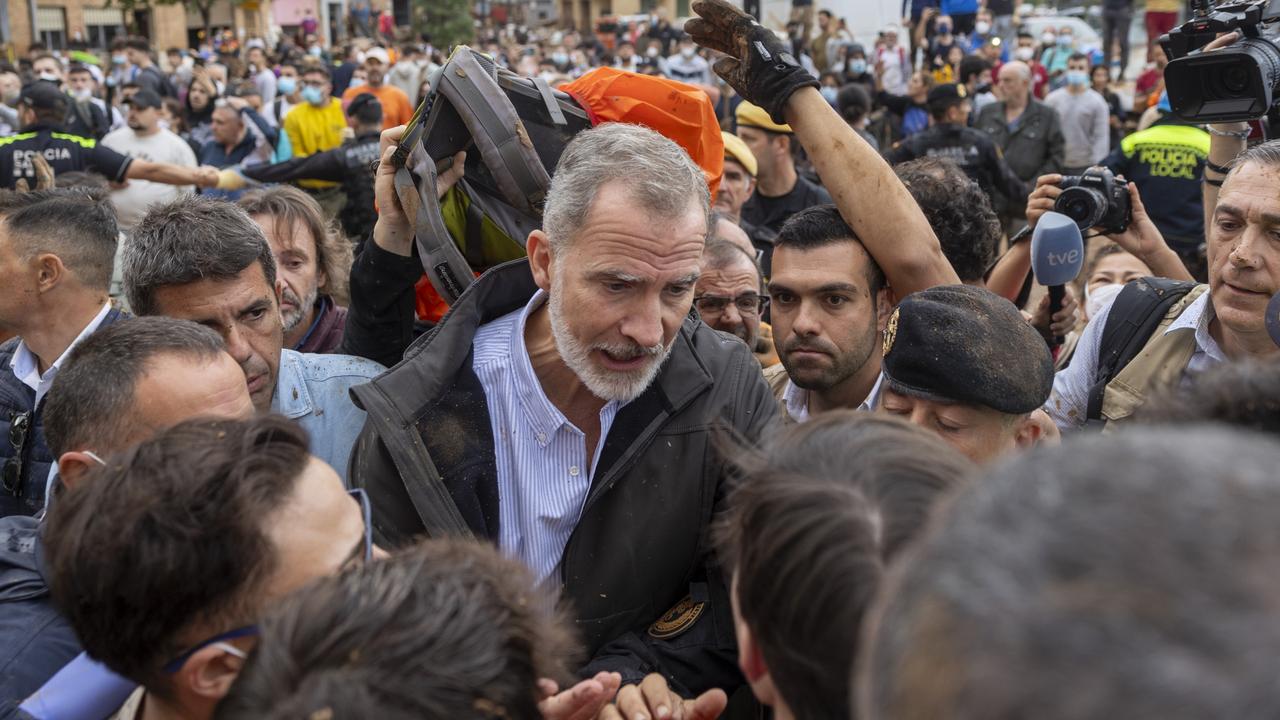
READING LEVEL: ORANGE
As Spain remains on alert for further storms, victims of last week’s flash flooding* disaster have thrown mud and insults at the country’s king, queen and prime minister.
Locals in the town of Paiporta focused their anger on Prime Minister Pedro Sanchez and Valencia regional government head Carlos Mazon, both of whom cut short a visit to the town worst hit by devastating floods, but the most senior members of the Spanish royal family were also met by a hostile crowd.
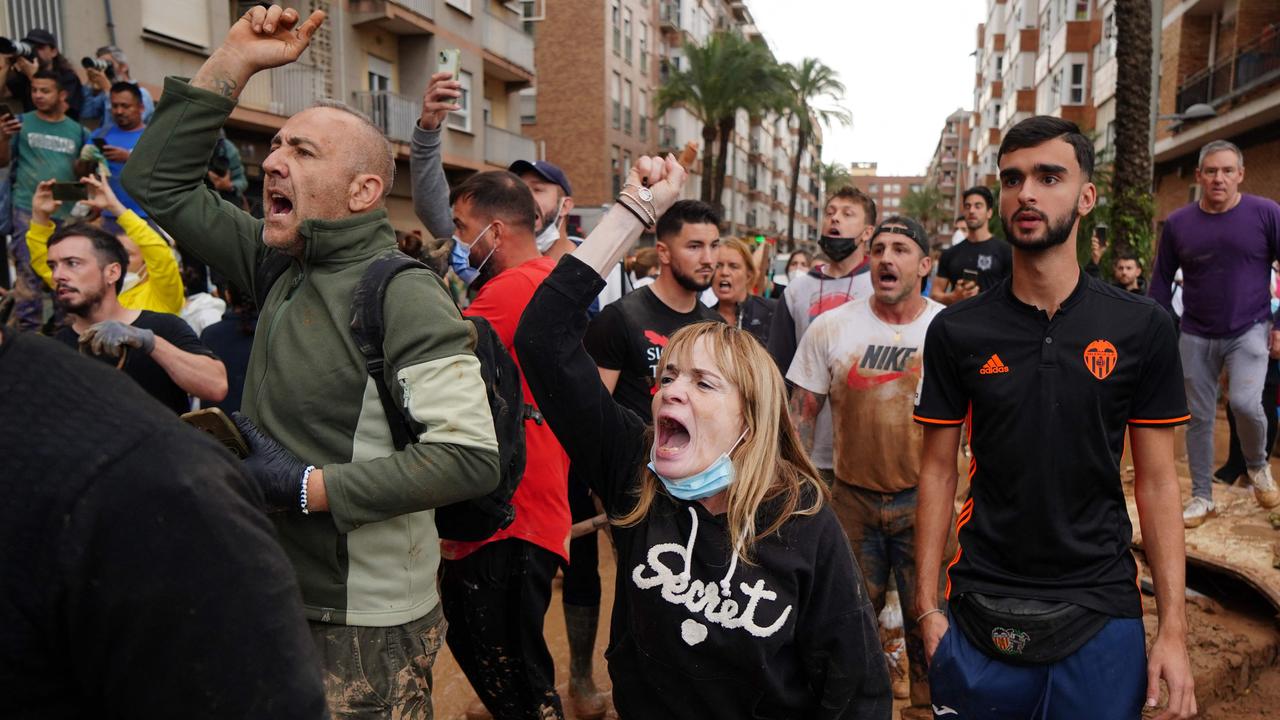
WHY ARE PEOPLE UPSET WITH OFFICIALS?
Extraordinary scenes with King Felipe VI and Queen Letizia have revealed the depth of anger over the official response to Spain’s worst disaster in decades.
The monarchs were called names and had mud flung at them as they tried calming the angry crowd five days after the floods hit.
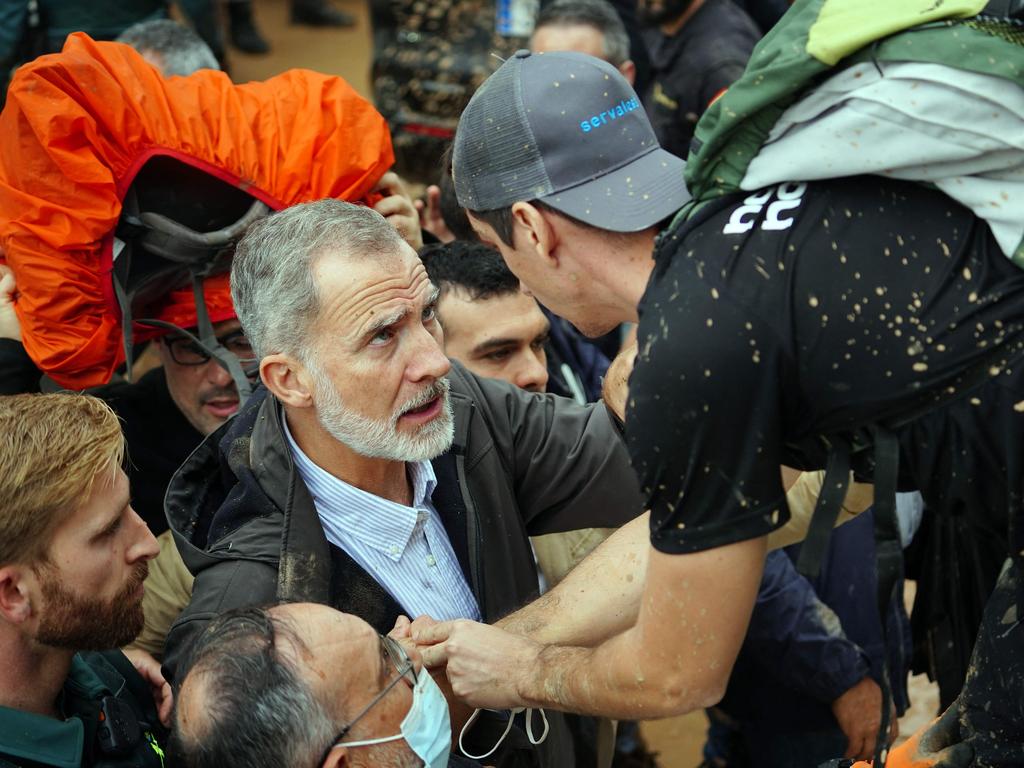
The couple visited a crisis centre in Paiporta, ground zero* for a disaster PM Sanchez called the second deadliest flood in Europe this century.
But extra security guards were soon called to stand between the royals and the angry crowd, whose fury seemed mostly aimed at PM Sanchez and Mr Mazon.
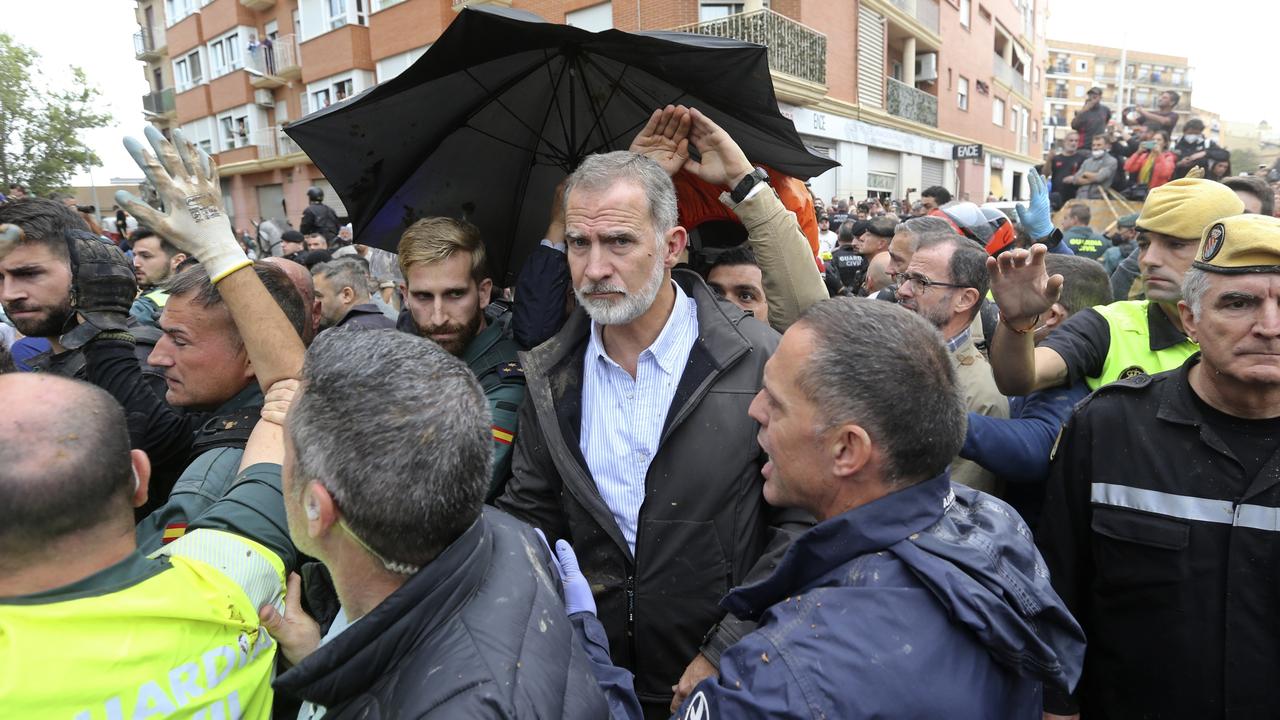
The king and queen spent an hour trying to calm tempers before leaving. Mr Sanchez and the local politicians quickly left, but not before the rear window of the premier’s vehicle was broken.
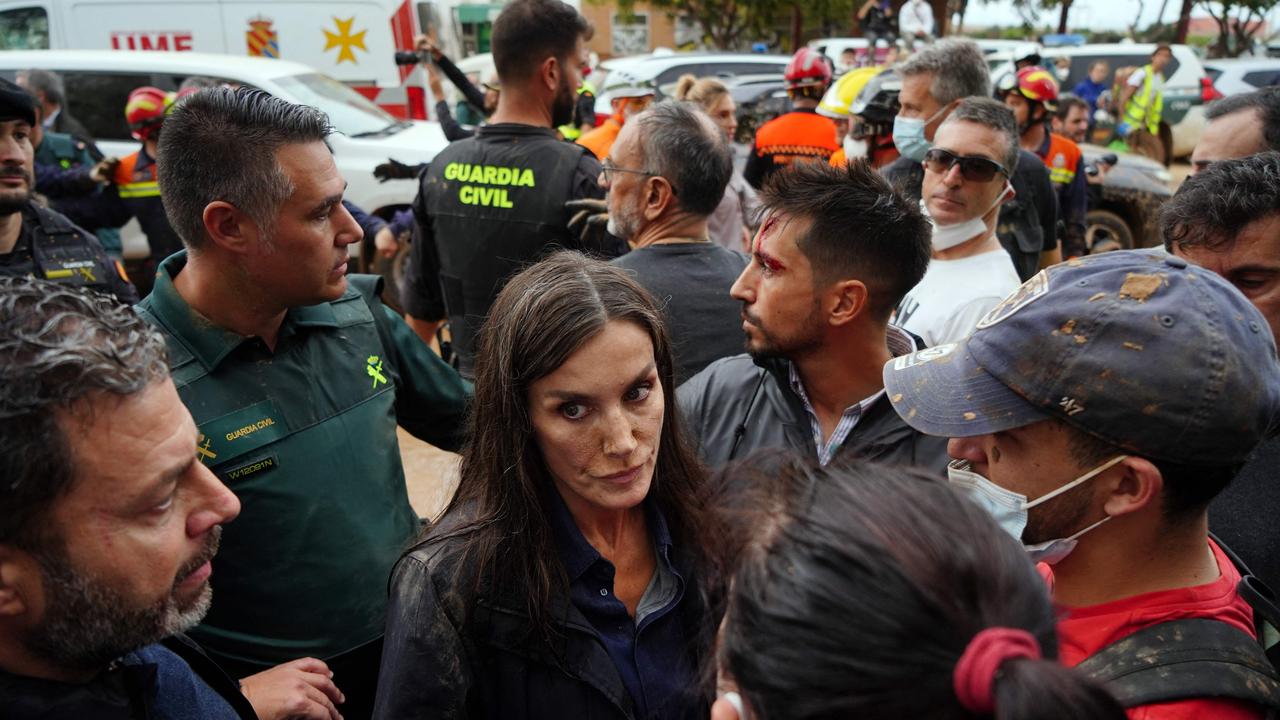
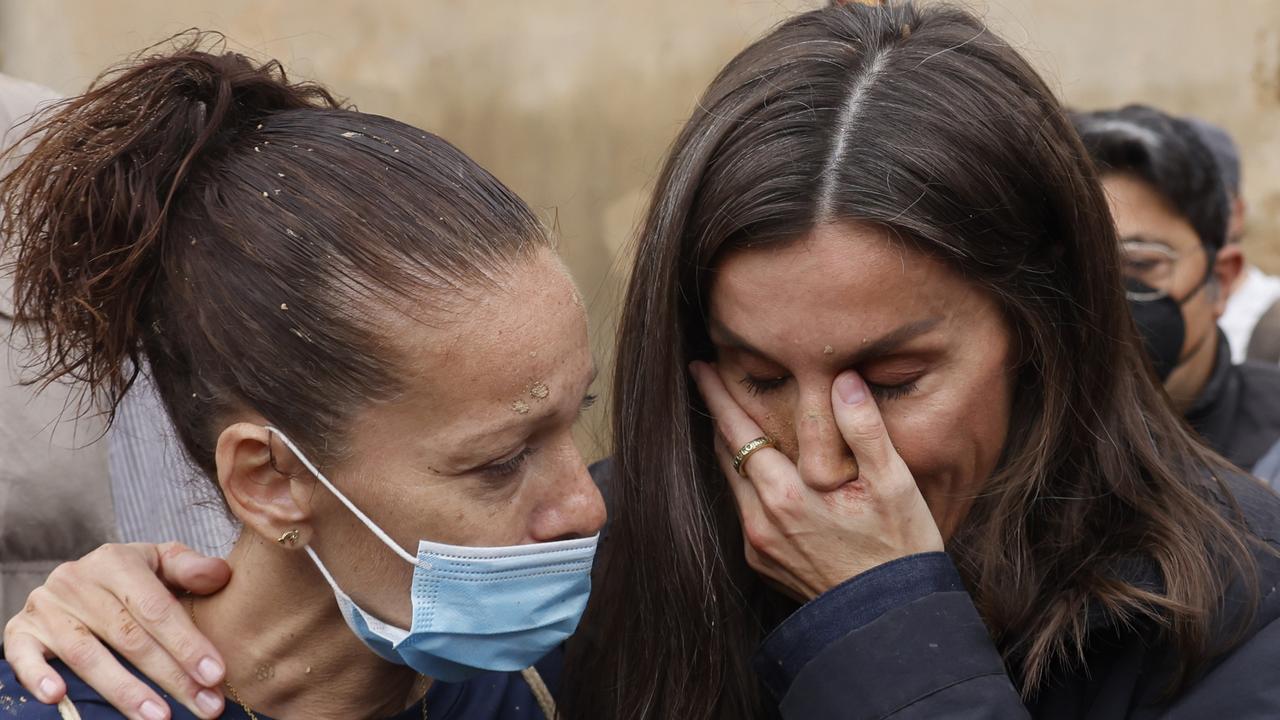
Mr Sanchez later said he empathised* with the “anguish* and suffering” of the victims but condemned “all forms of violence”.
Authorities have come under fire over warnings made before the floods, while residents also say the disaster response has been too slow.
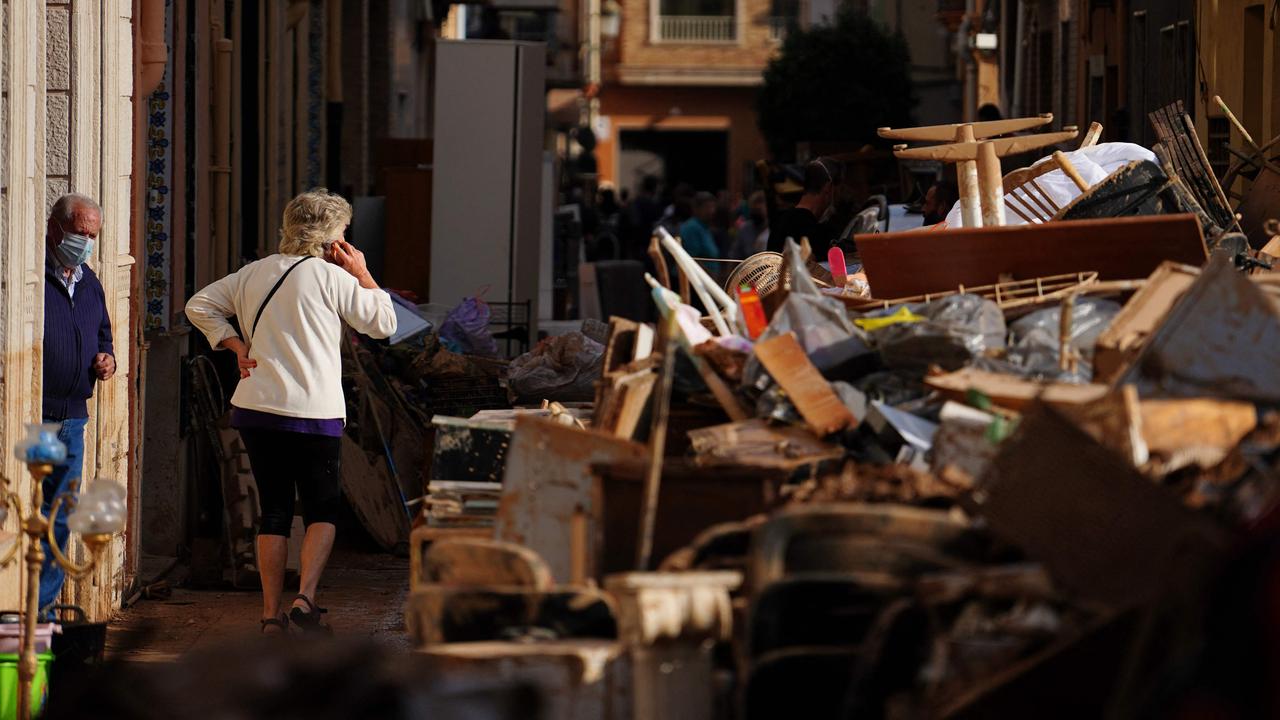
As local leader, Mr Mazon in particular has faced fierce criticism for waiting too long to issue a phone alert in Valencia.
“I understand the social anger and of course, I’m here to receive it,” Mr Mazon said in a post on X. “This is my political and moral obligation.”
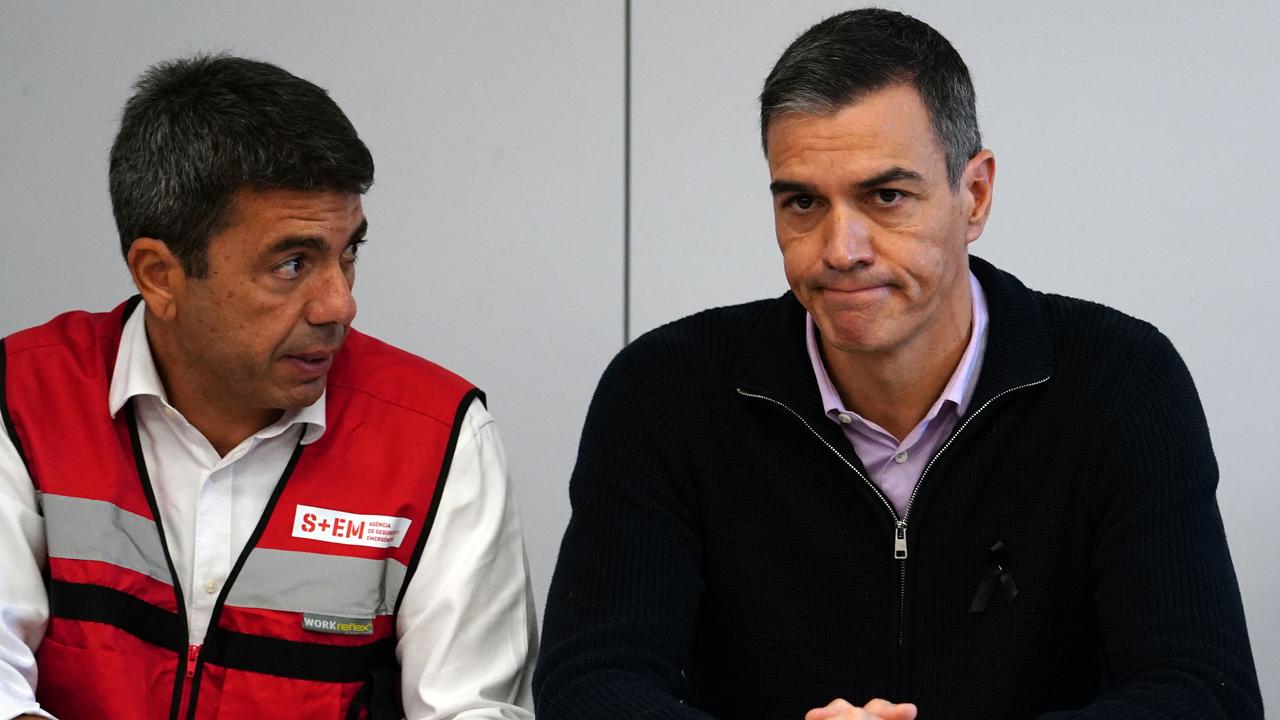
With an extra 10,000 troops, police and civil guards sent to the Valencia region, Spain has ordered its largest peacetime military and security force deployment*, PM Sanchez said.
“I am aware the response is not enough, there are problems and severe shortages … towns buried by mud, desperate people searching for their relatives … we have to improve,” he said.
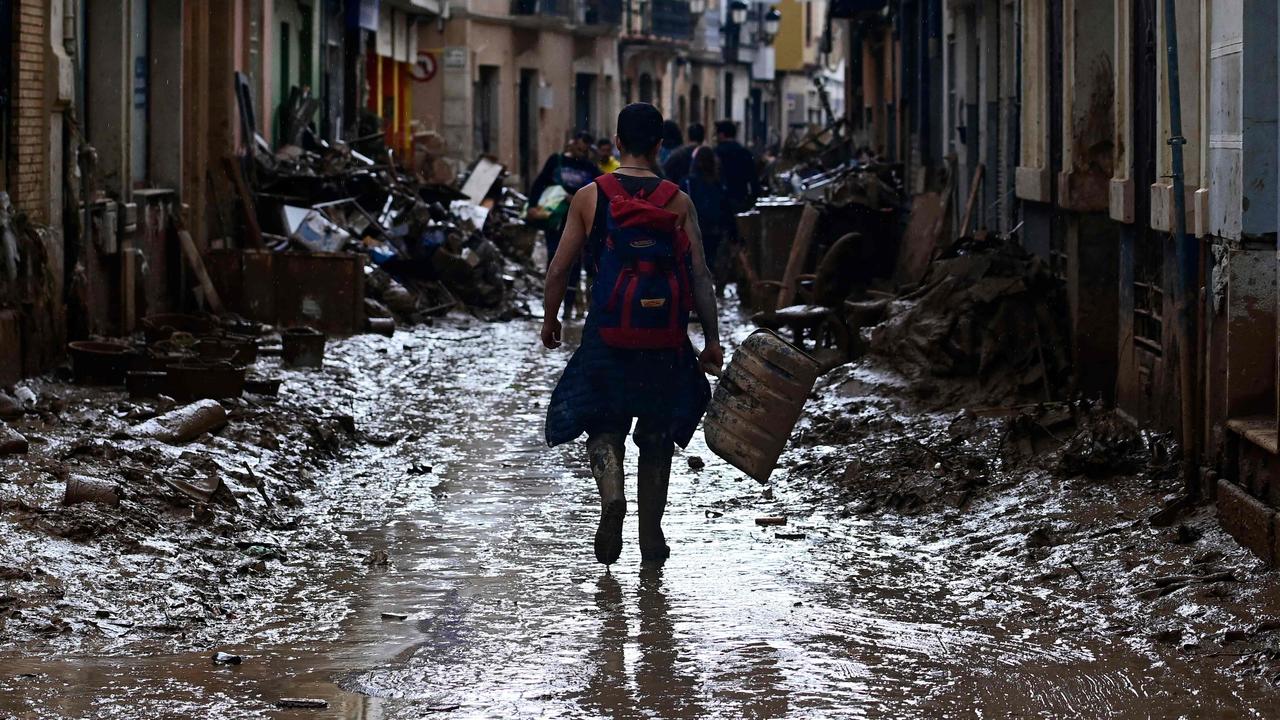
VOLUNTEERS HELP FILL THE VOID
Since last week’s torrent of rain and mud swept away vehicles and devastated towns and infrastructure*, thousands of emergency responders have frantically cleared debris in the search for survivors.
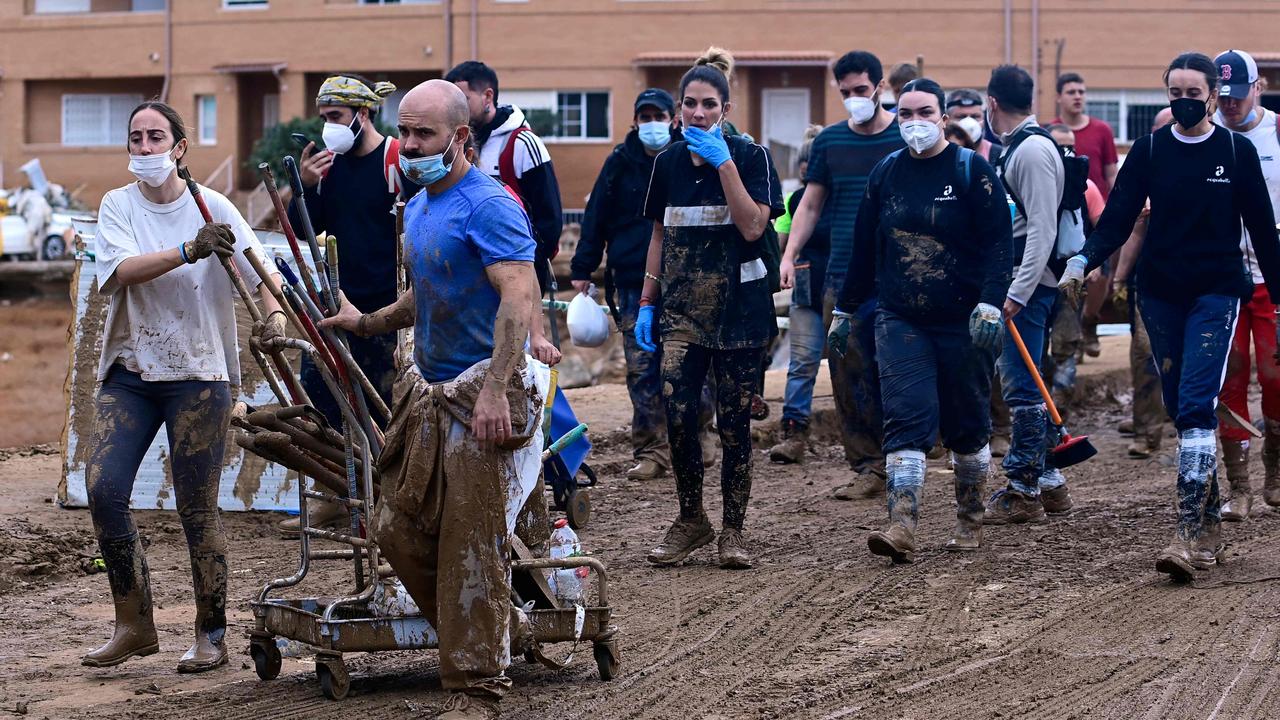
Volunteers with food, water and cleaning equipment have continued to assist the recovery, although authorities have urged people to stay at home.
On Sunday, the Valencia government limited the number of volunteers authorised to travel to the city’s southern suburbs to 2000 and restricted access to 12 localities.
Despite these limits, thousands made their way on foot, carrying brooms and shovels to try to help.
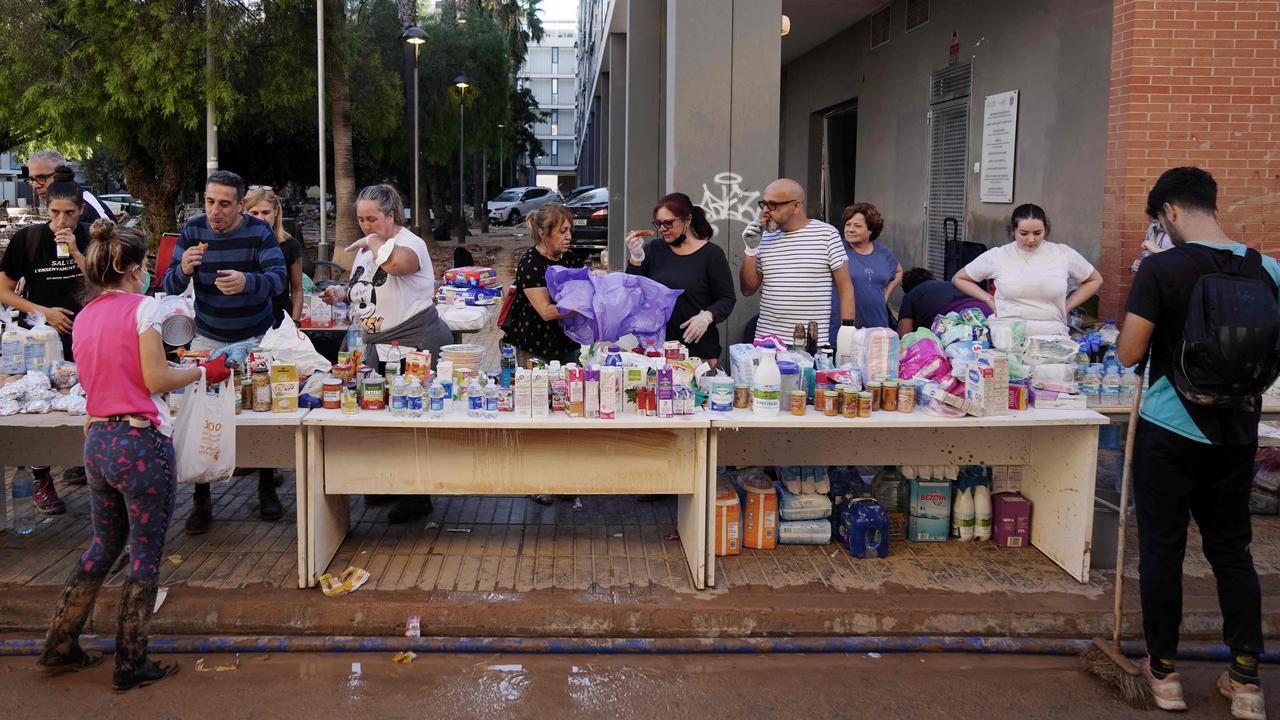
“Thank you to the people who have come to help us, to all of them, because from the authorities: nothing,” a furious Estrella Caceres, 66, told AFP in the town of Sedavi.
In Chiva, Danna Daniella said she had been cleaning her restaurant for three days straight.
“It drives you crazy, “ she said. “You look for answers and you don’t find them.”
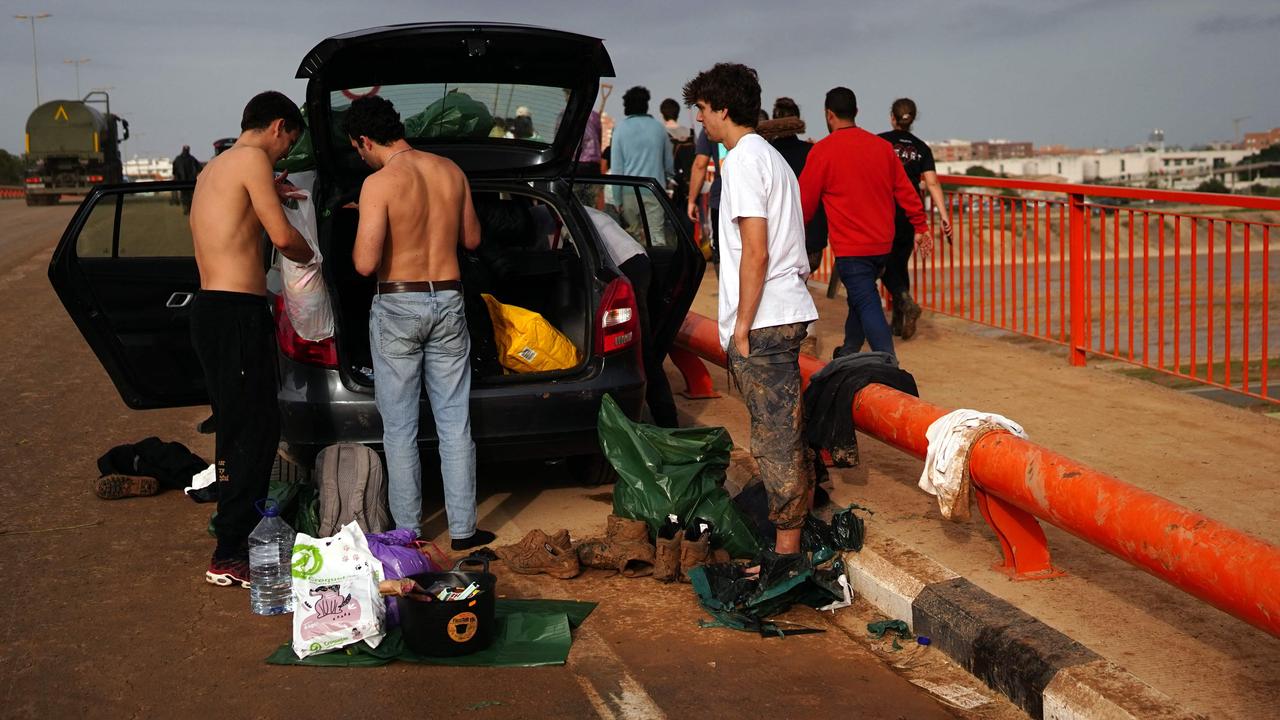
ABOUT THE FLOODS
Nearly all the 217 confirmed deaths have been in the Valencia region, where Spain’s meteorological* agency on Sunday evening issued a “red alert” for new storms in the region.
Police using megaphones urged residents in Valencia city and the surrounding region to return home as the first drops began to fall, according to an AFP journalist.
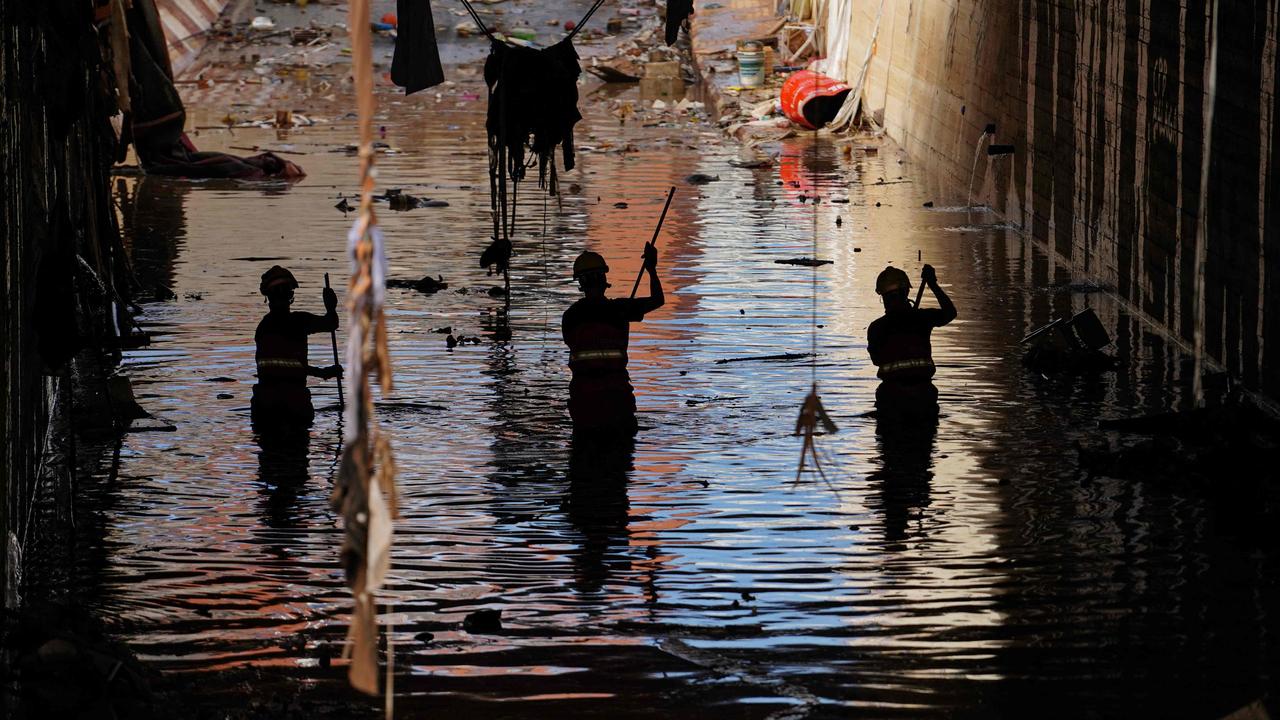
The AEMET weather agency forecast “high intensity” storms bringing up to nine centimetres of rainfall in one hour.
The agency earlier predicted torrential rain that could cause flooding in the southern province of Almeria, advising residents not to travel unless necessary.
The storm that sparked the flash floods last week formed as cold air moved over the warm waters of the Mediterranean and is common for this time of year.
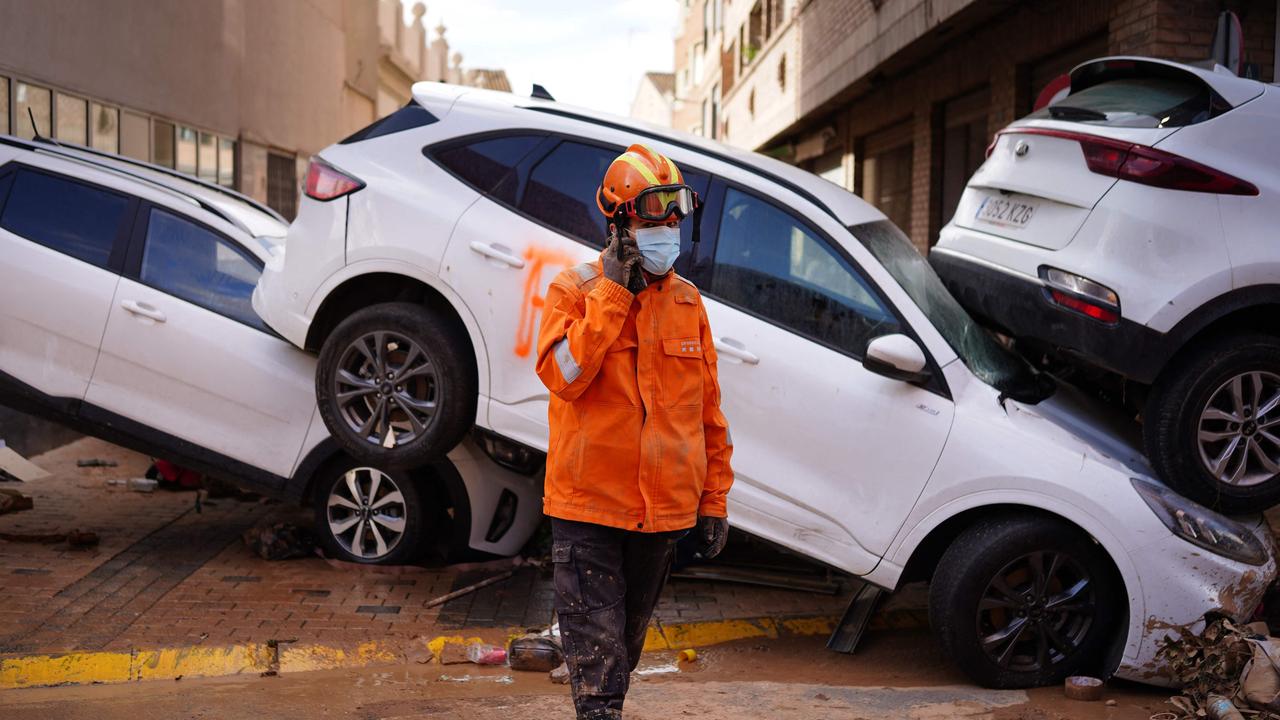
But scientists warn climate change driven by human activity is increasing the ferocity*, length and frequency of such extreme weather events.
Spain’s Transport Minister Oscar Puente told El Pais that certain places would probably remain inaccessible by land for weeks.
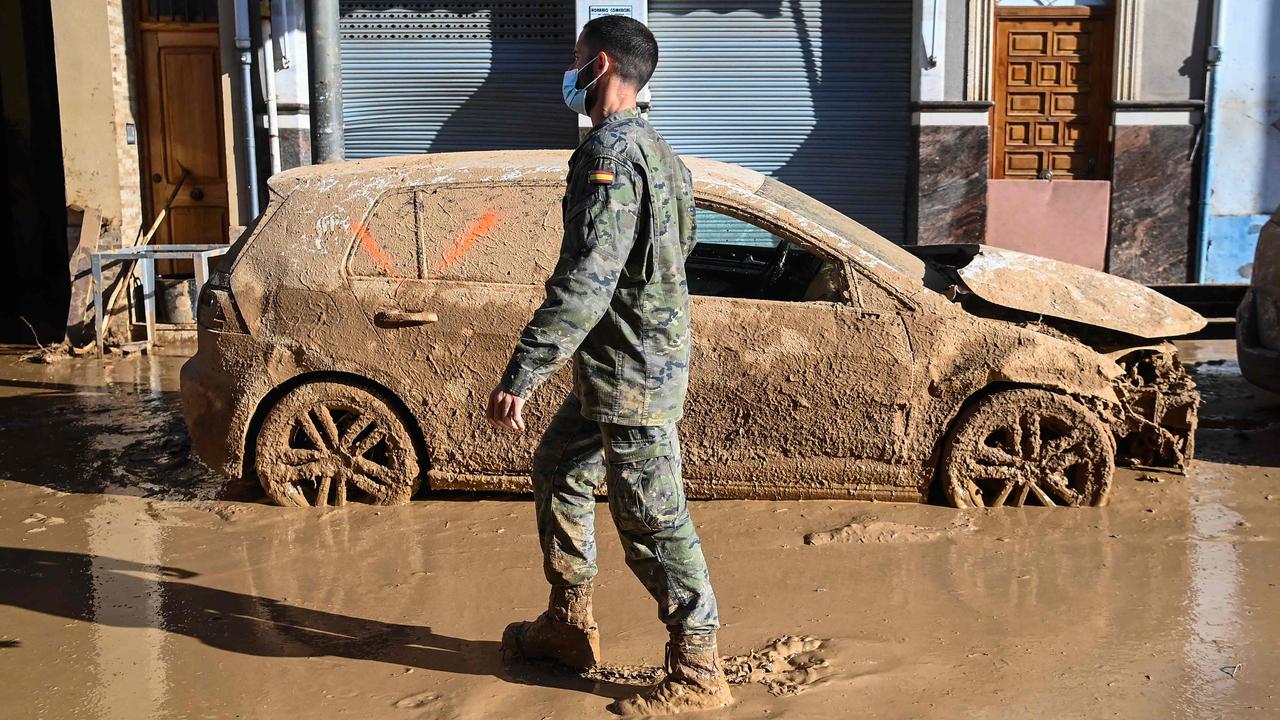
POLL
GLOSSARY
- flash flooding: occurs when too much rain falls at once and can’t be absorbed by the ground, generally within six hours of excessive rainfall
- ground zero: the epicentre or main scene of a disaster or activity
- empathised: understood the feelings of others
- anguish: extreme distress, anxiety or suffering, be it mental or physical pain
- deployment: sending someone or something to do something specific in an organised, effective manner
- infrastructure: basic facilities and systems, such as transport, power, hospitals and schools
- meteorological: related to weather, forecasting, changes in Earth’s atmosphere
- ferocity: fierceness, something extremely brutal or violent in nature
EXTRA READING
How climate change affects Australia
Why experts called for first ‘Cat 6’
Freight train derails amid Victorian floods
QUICK QUIZ
- Which region of Spain was worst affected by last week’s flash floods?
- Locals in Paiporta focused their anger on which two officials?
- How many extra police, troops and civil guards have been deployed?
- What are the names of Spain’s reigning king and queen?
- What limits were placed on volunteer activities by authorities in Valencia on Sunday?
LISTEN TO THIS STORY
CLASSROOM ACTIVITIES
1. Emergency response
How would you compare Spain’s emergency response protocols to what we might experience here (such as in a bushfire emergency situation).
Compare and contrast some potential protocols we might have in place that they may not or vice versa below:
Spain emergency response:
Australia’s emergency response:
Time: allow 20 minutes to complete this activity
Curriculum Links: English, Personal and Social, Critical and Creative Thinking
2. Extension
Do you think our government and world leaders are doing enough to tackle climate change when it can lead to serious weather events and disasters such as this?
Write a letter to our Prime Minister, Anthony Albanese, outlining your concerns and what action you’d like taken.
Time: allow 30 minutes to complete this activity
Curriculum Links: English, Science, Personal and Social, Critical and Creative Thinking
VCOP ACTIVITY
Vocabulary and sentence construction
Objective: To help students expand their vocabulary and improve sentence construction skills using words from the article about the flash flooding disaster in Spain.
Instructions:
Task: Read the article about Spain’s recent floods and the response from officials and volunteers. From this article, select any five words from the article that you find interesting or new that are not glossary words. These words should help you understand what happened in Spain and how people reacted.
Define and use in a sentence:
Define each of your chosen words in a way that you understand.
Write a sentence for each word that relates to the article or makes sense on its own.
Example vocabulary and sentence construction:
Word 1: Devastating
Definition: Something that causes a lot of destruction or damage.
Sentence: The flash floods devastated the towns in Valencia, destroying homes and roads.
Extension Challenge (optional): If you finish early, try to use two of your chosen words in a single sentence to show how you can connect ideas.

